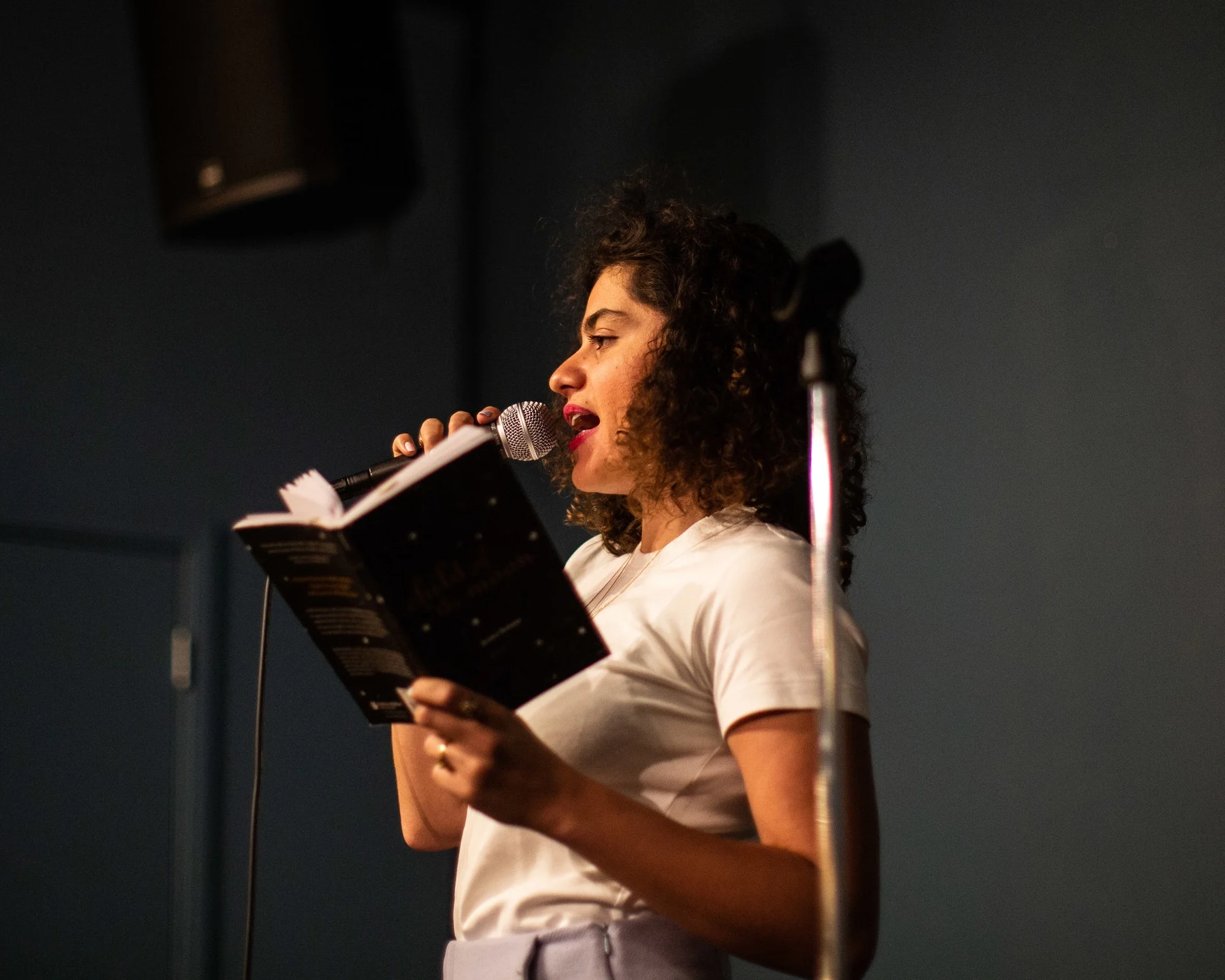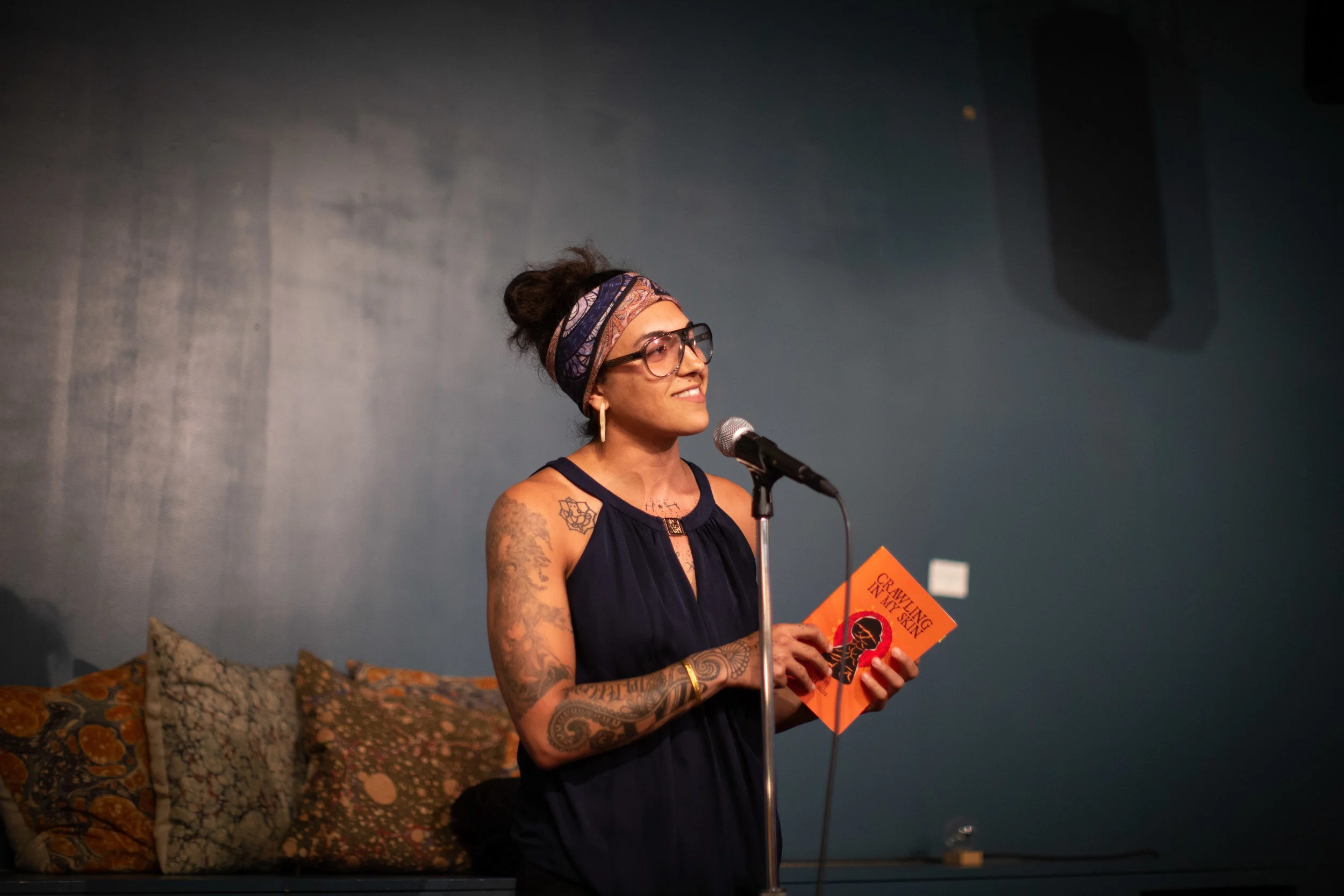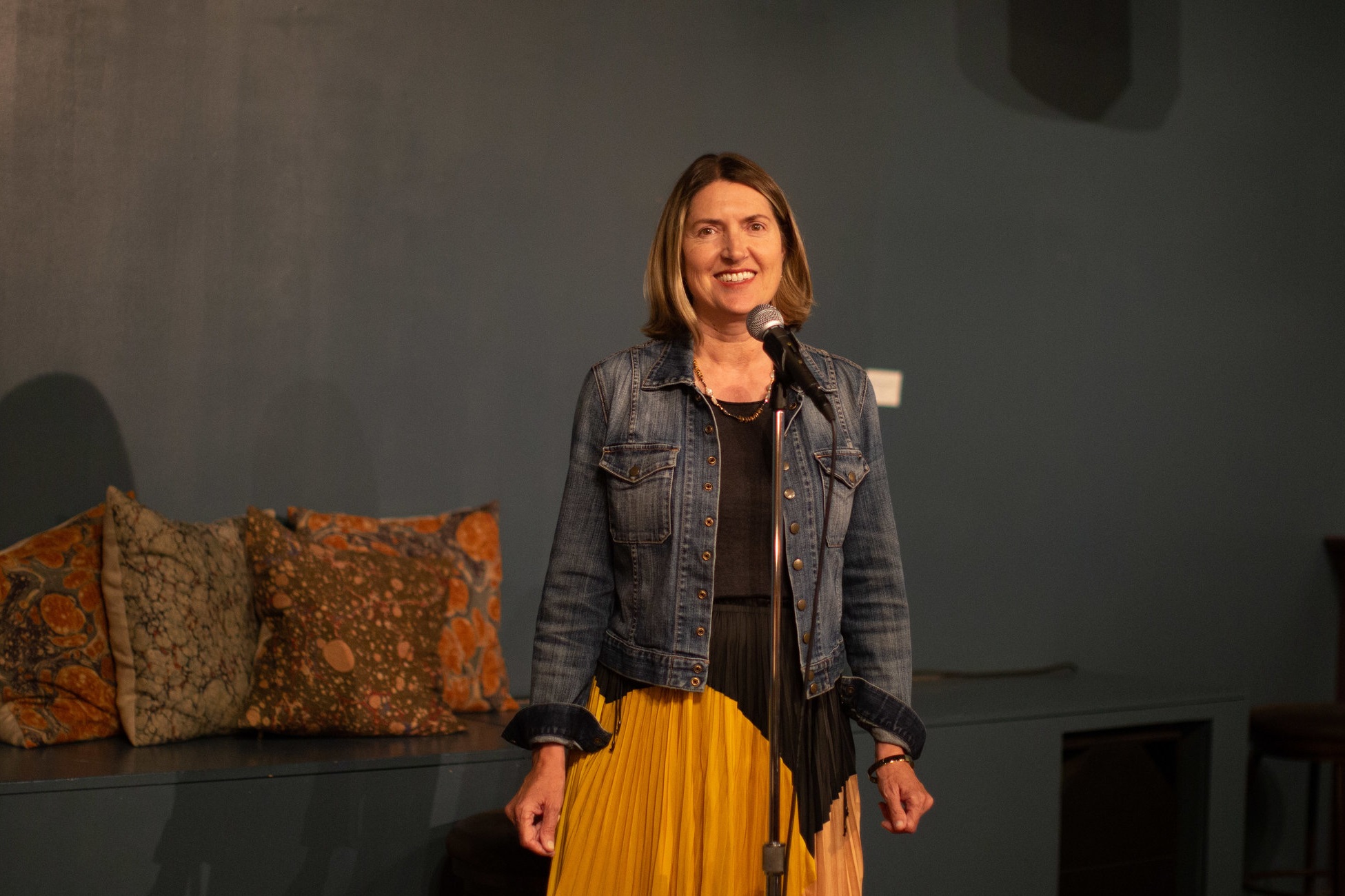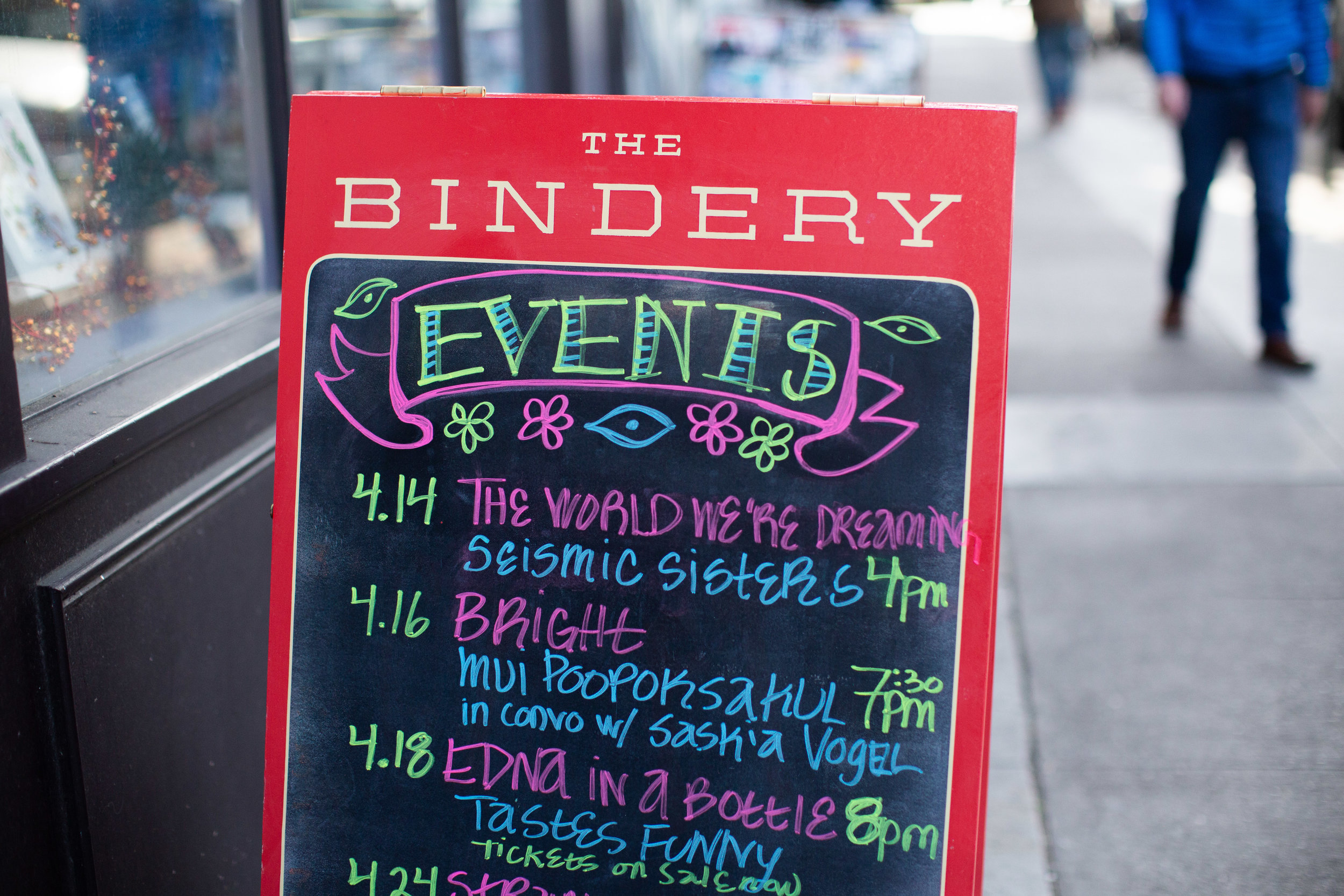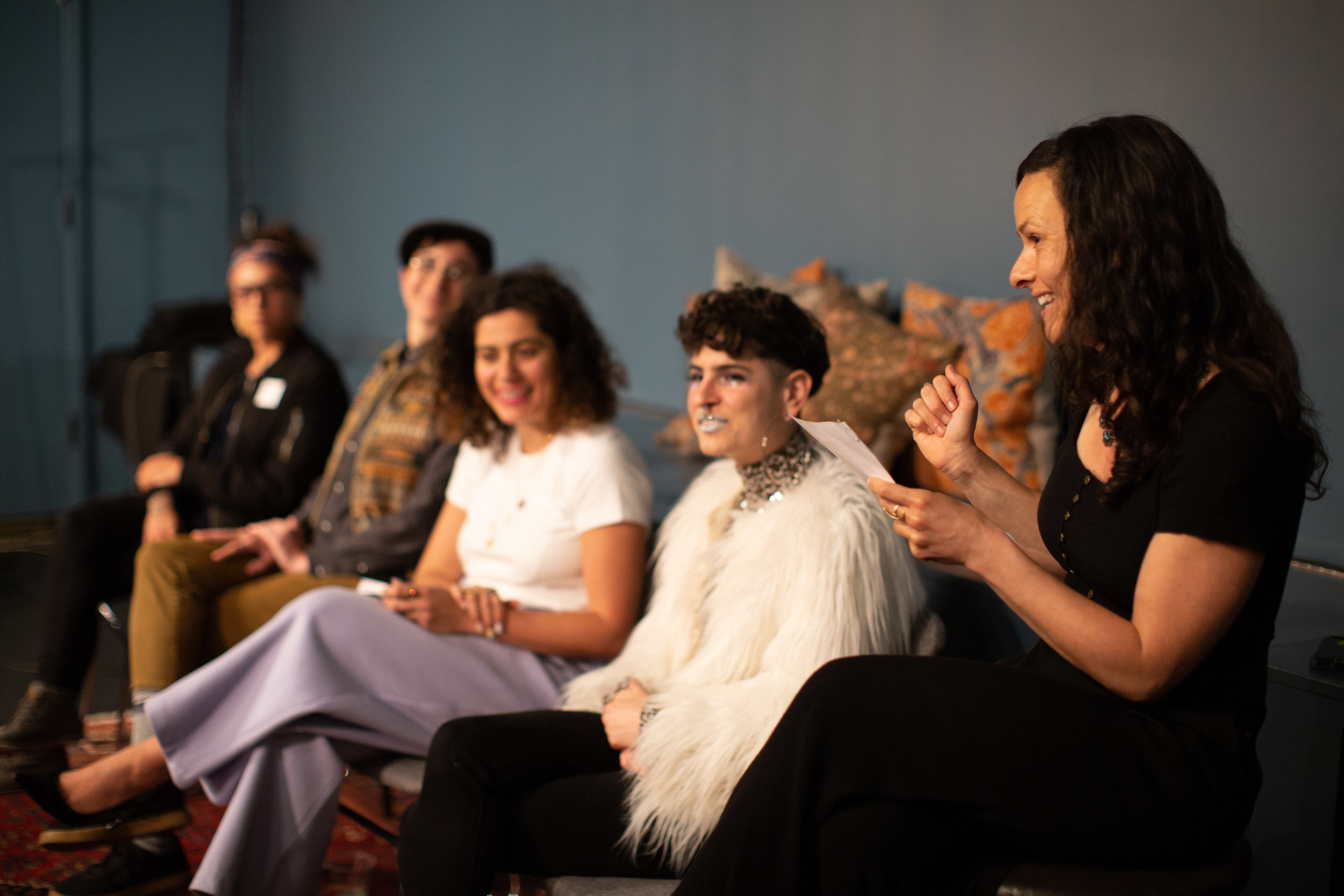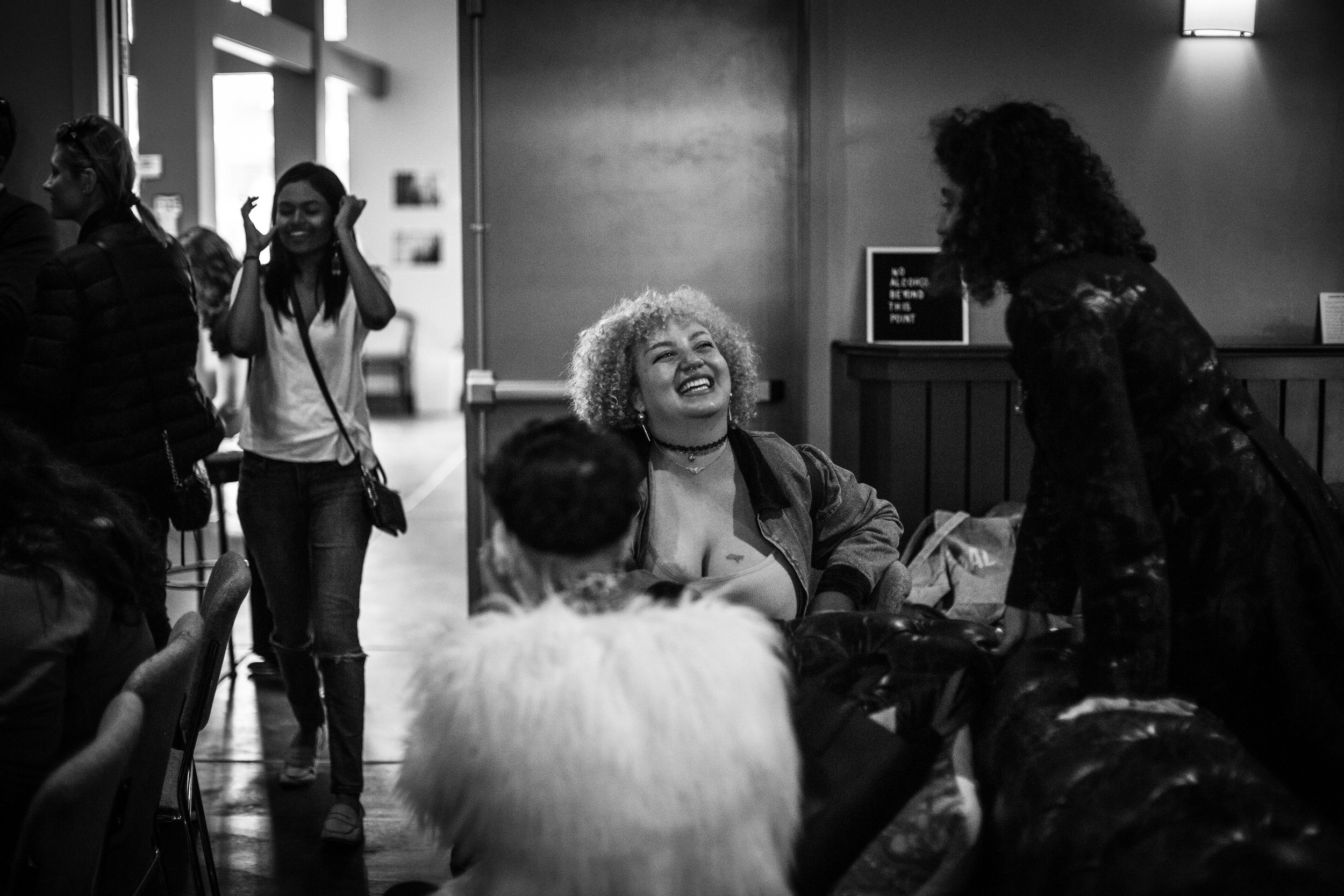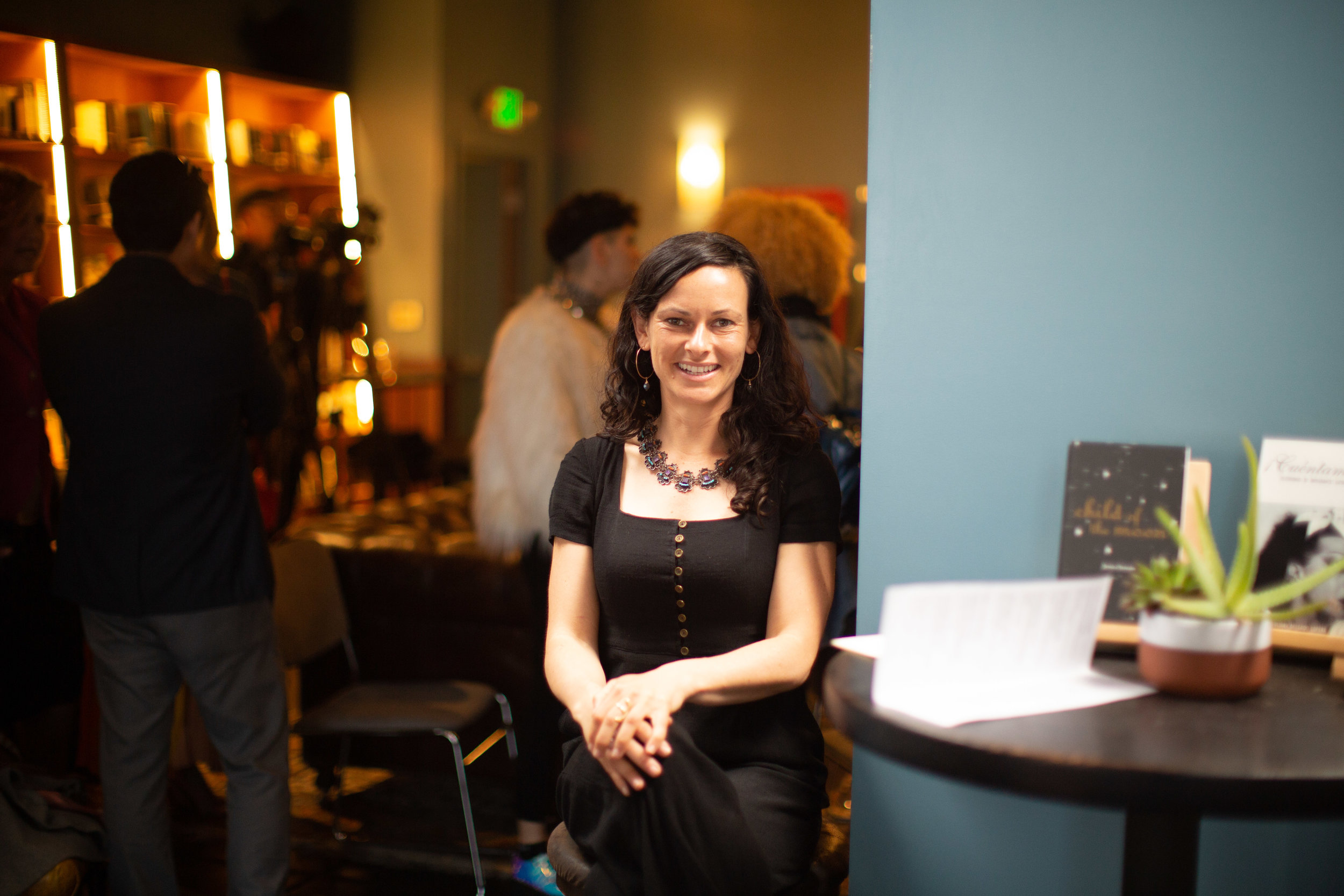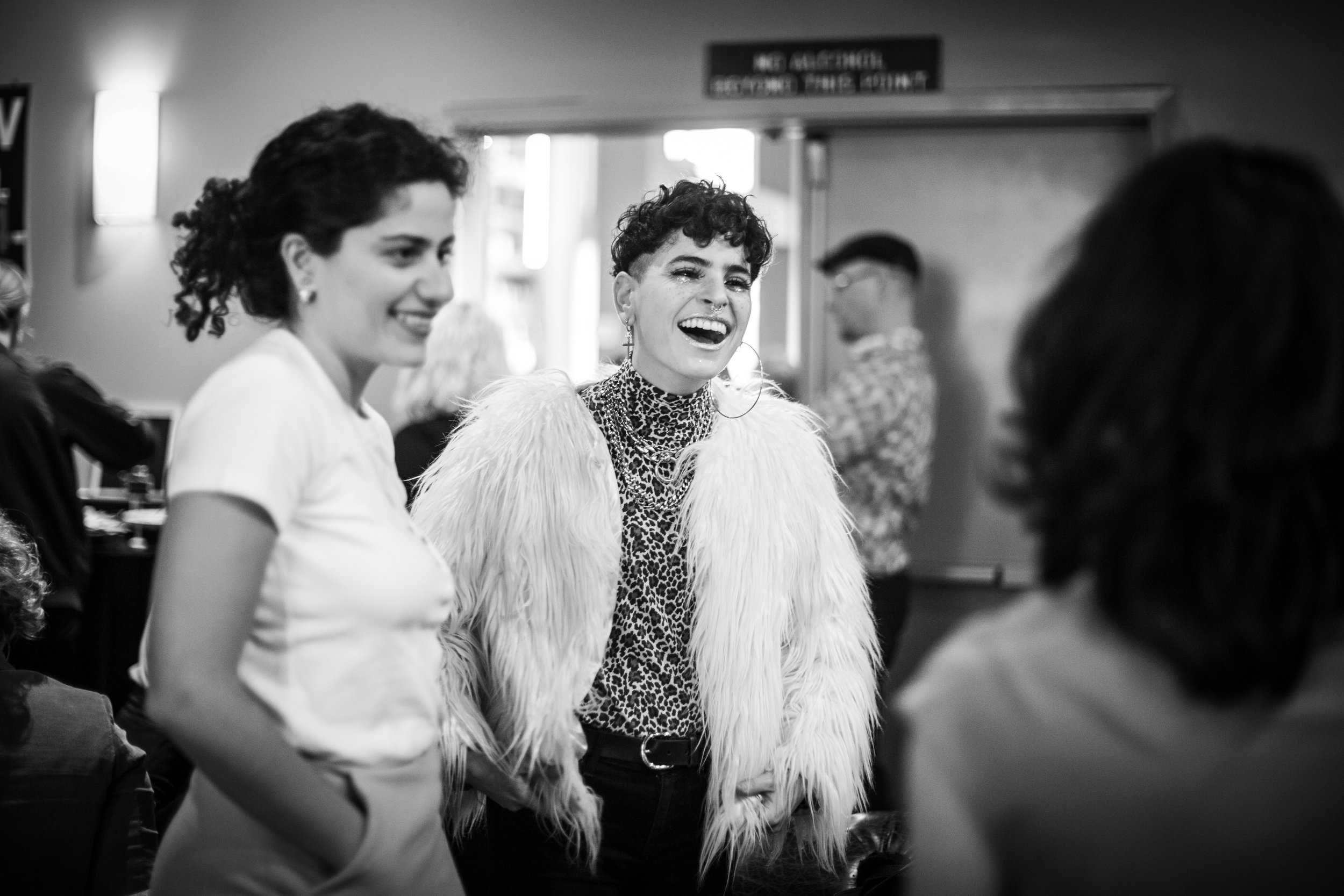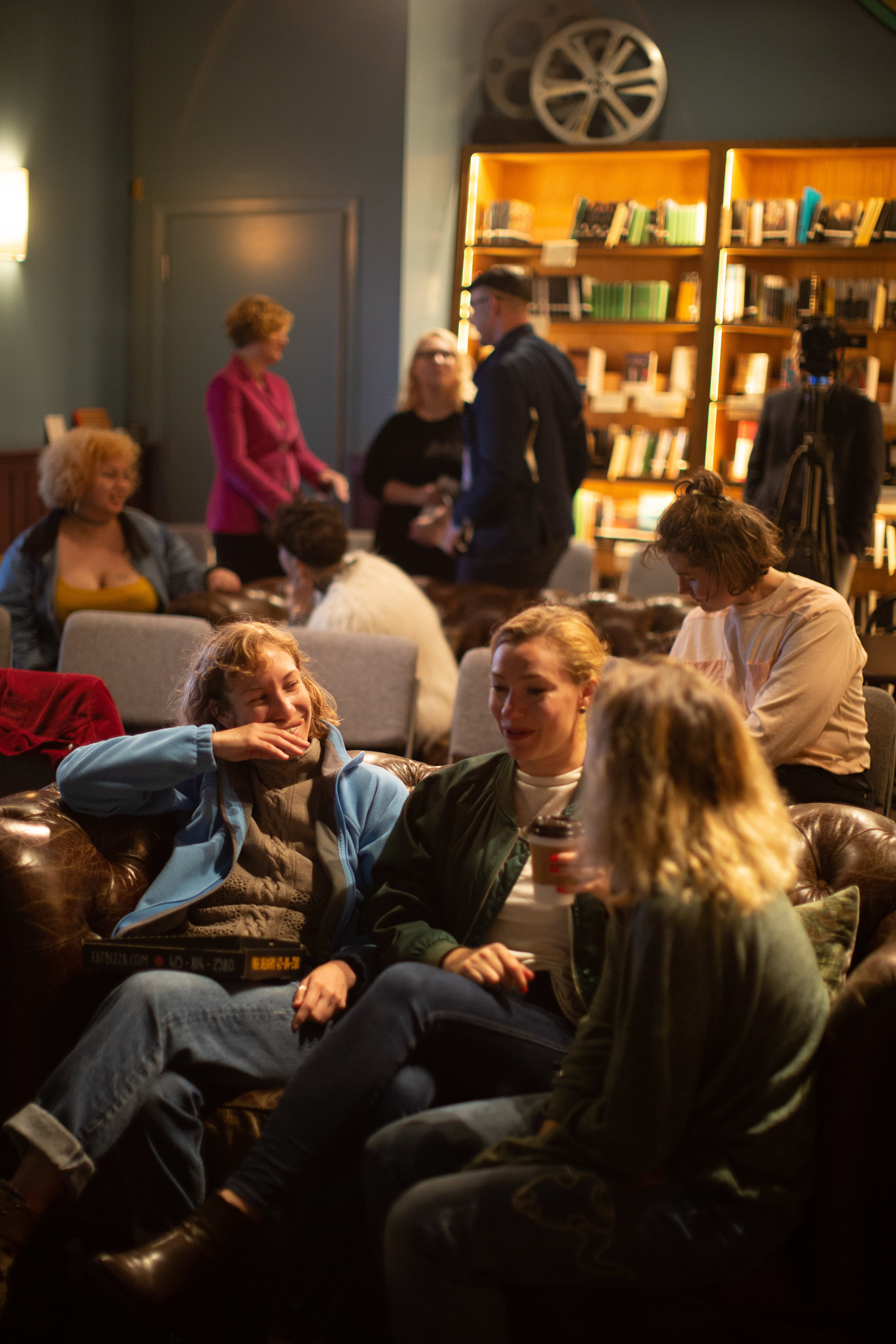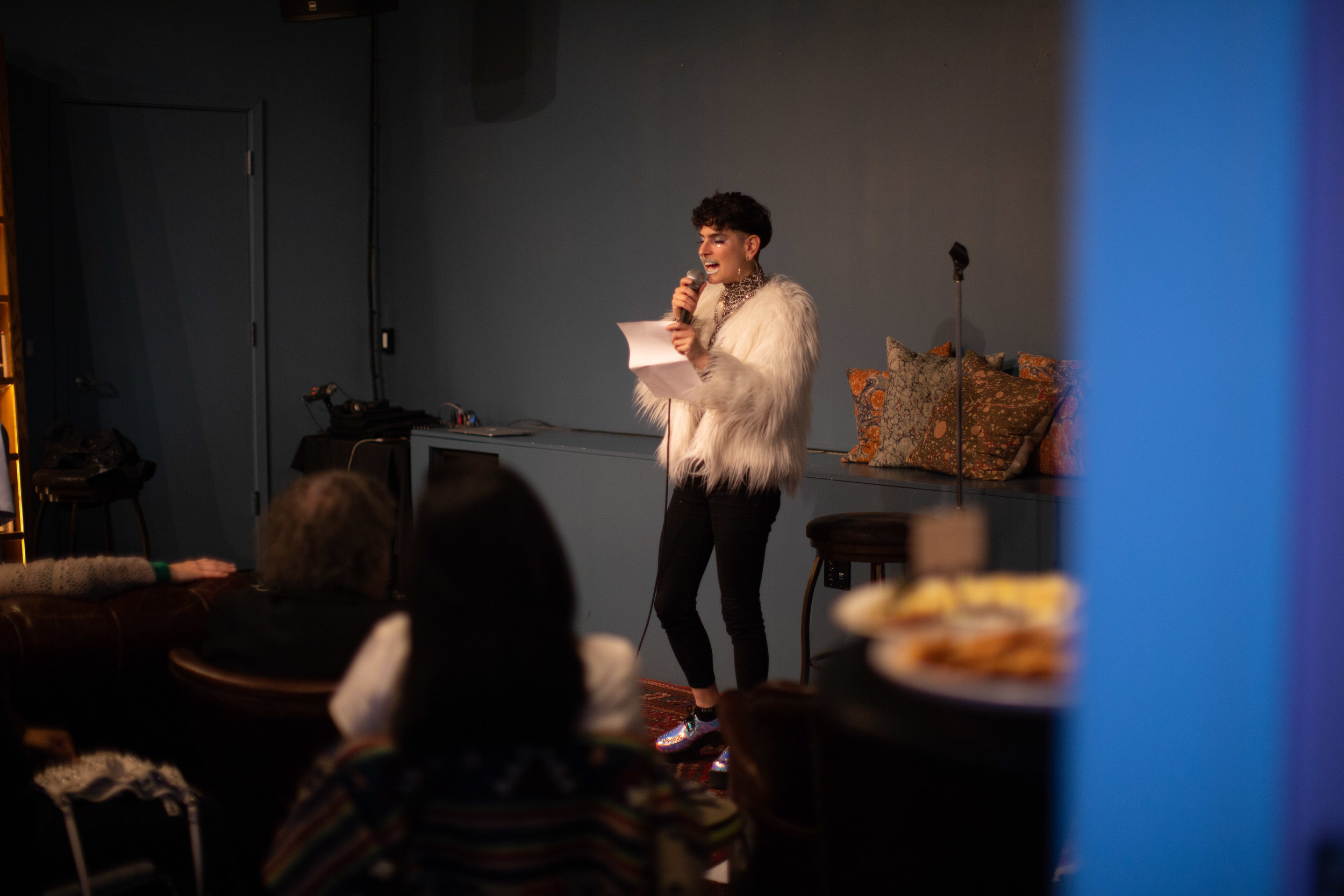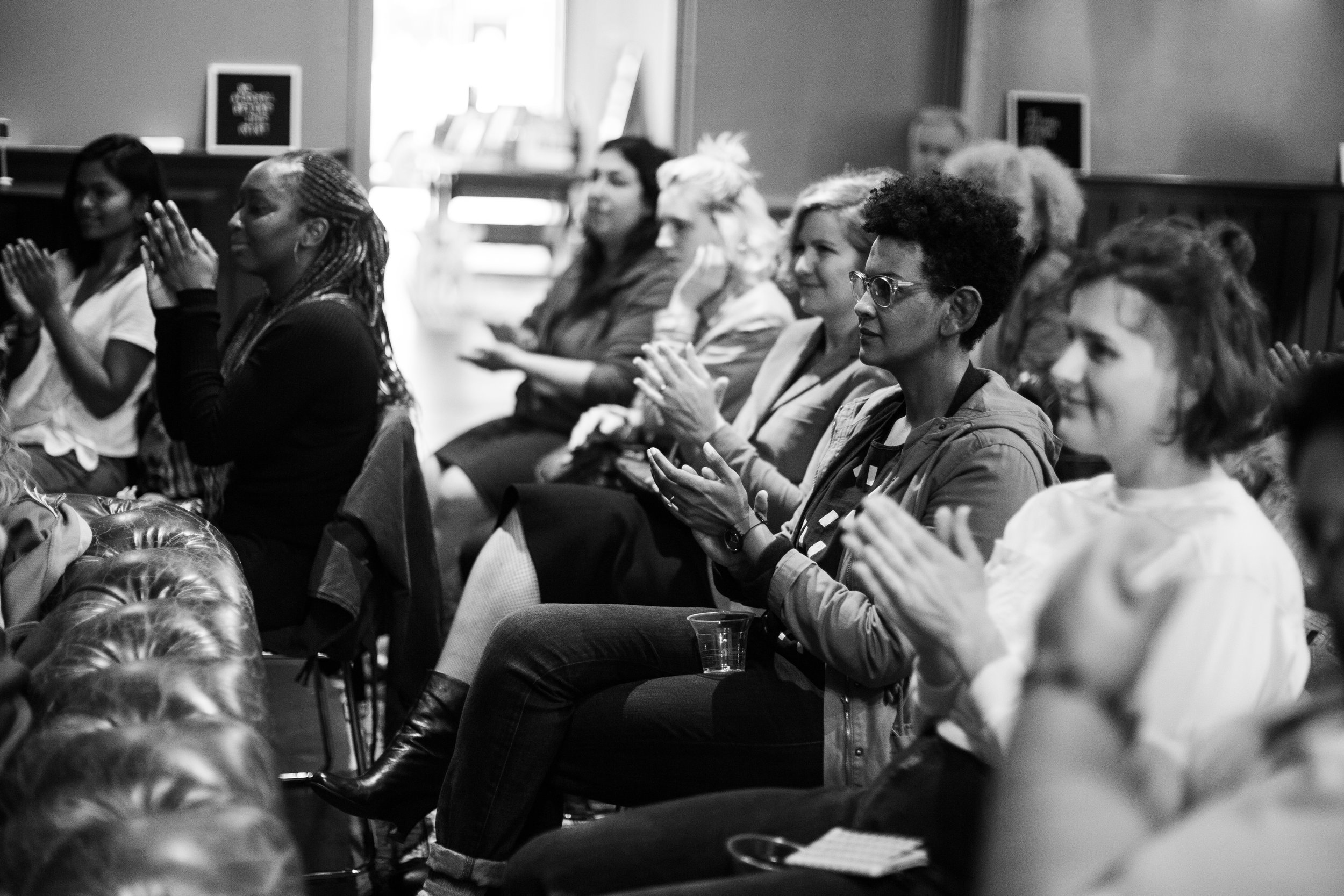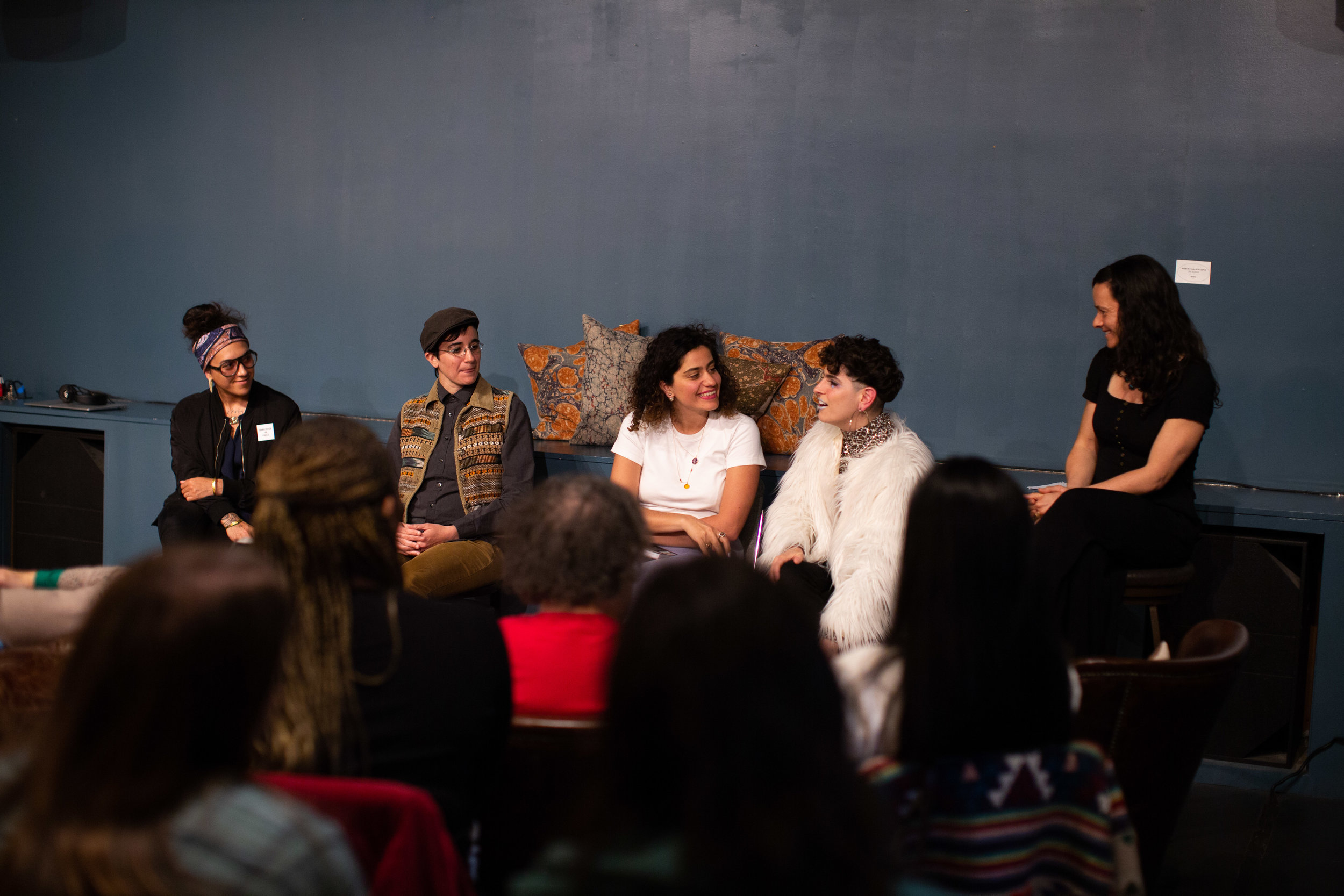By Casey Loosbrock
SAN FRANCISCO – Four visionary artists grabbed the mic at “The World We’re Dreaming,” a Seismic Sisters night of art and poetry on April 14, 2019 in San Francisco. The event featured artists who are creating culture in turbulent times and dreaming up a new world filled with art, love, respect, and justice. Performances by Jessica Semaan, Samsara Shmee, Juliana Delgado Lopera and ASHA sudra showed what art and social justice look like when lived together.
The World We’re Dreaming - produced by Polina Smith, video by Mister WA.
The Bindery, a unique venue on Haight Street, created an eclectic ambience for the event with its high ceilings, walls covered in books, vibrant art and tchotchkes. The lounge was cozy and intimate, the mismatched chairs, warm lighting, and vintage bar cart added to the scene.
The first artist, Jessica Semaan, performed two poems from her new book “Child of the Moon” entitled, ‘To become the woman I am’ and ‘I am not mentally ill.’ The former is a reflection on her evolution as a woman and her struggles within overlapping cultures and systems of oppression. “I had to see that my head is full of voices that are not mine. Voices of systems of whiteness, colonialism, patriarchy. And every day I must purge,” she said. This poem was performed accompanied by a heavy and hypnotic hand-drum beat. The second poem was performed along with Semaan belly dancing. This piece hones in on the idea of collective responsibility. It begs the question: how can you not be mentally ill when you live in a world ravaged by war, famine, and climate change? She concludes, “If one of us is ill, our whole world is ill.”
ASHA is an artist, educator and revolutionary. She shared from her new book of poems titled “Crawling in my Skin” and rhythmically performed her pieces. She spoke about how she used to feel ashamed of her heritage, but now feels the need to wear her lineage on her sleeve, quite literally, referring to her tattoos as “cultural graffiti” and understanding it as a sacred art form. ASHA’s work is influenced by hip hop music, from the way she phrases her stanzas to the way she referred to ‘Ants’ - her favorite poem from the book - as “the single if this were an album.” The poem is a reflection on how the artist sympathizes with ants, how colonies of ants move throughout homes because they are forced from one place to another, their numbers dwindling because of poison, and how habitat destruction has taken away their historical places. She finishes with, “I might give up and just let the ants win.”
Shmee, the next artist, is a storyteller and performed a spoken word piece about their identity. They explored the idea of their own name, referring to the classic “rose query,” which was made even more relevant due to the setting—Romeo and Juliet was displayed prominently on a nearby bookshelf. They touched on the power that comes from choosing a name, explaining that ‘theirs’ is what feels good to say, as well as the combination of ‘she,’ ‘me’ and ‘he.’ They explained that self-acceptance has required time and experience, and though it was not easy, it was worth it. Shmee concluded with, “My growth is a resurrection.”
The last performer was Juliana Delgado Lopera, a Colombian writer, historian, speaker and performance artist who has written three books, “Quiéreme,” “¡Cuéntamelo!” and “Fiebre Tropical.” Lopera told deeply intimate stories about her experience growing up in a matriarchy in Colombia and how the performance of female sadness was a huge part of her cultural upbringing. She spoke about the art of finding the humor behind everyday sadness and often sprinkled slang used in drag circles, like throwing shade and spilling tea, among others. Lopera told the audience about how Catholicism’s prevalence in Colombia has made the Virgin Mary the only female role model women have, making martyrdom the most sought after form of female sadness.
After the performances, there was a panel discussion in which audience members could interact with the artists. The talk soon focused on the artistic process. Shmee emphasized the need to attentively listen and observe in order to make art that means something to everyone. Semaan spoke to the need to embrace the uncomfortable, saying “screw the silence, let’s talk about it.” Intuition in young people is what ASHA draws inspiration from, stating that their passion is contagious. Lopera said that today’s political climate makes her feel the need to just create more art and to make sure more people feel seen and heard.
Kim Christensen, founder and editor of Seismic Sisters, summed up the evening like this, “Resistance is important, but we can’t just resist. We need to be in creative mode too.” She explained, “We are here creating new culture—creating the world we want.” This is the world we are dreaming.
Casey Loosbrock is a freelance writer. Photos by Tumay Aslay.

